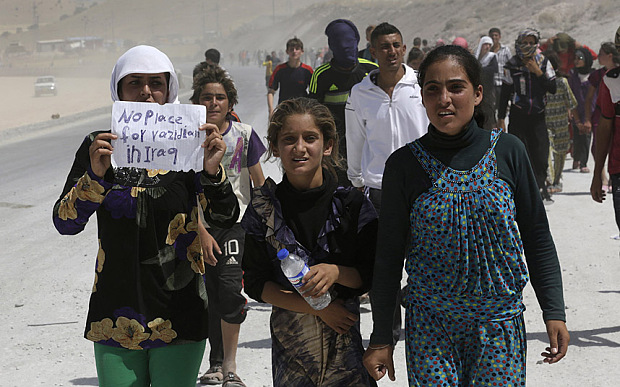BERLIN — Increasing numbers of Yazidi women are committing suicide after moving to Europe from their war-torn homeland. Experts not that this is caused by a number of factors, including coping with war trauma while living in a foreign country and the alienation they feel from their previously tight-knit community.
The rate of suicide among Yazidi women has increased in recent years, particularly in Germany, according to Sabriye Sevgat, who works at the Yazidi Women’s Council in Germany.
“Suicides can occur in every age group of women and in every social group. There is no limitation. Suicides were more common among young people five years ago. Then it stopped. But it’s been happening again over the last year. Most of them are young women coming to Europe after the war. But there have been women who killed themselves here for many years,” Sevgat told Ahval.
“My body is here, but my soul is there. I miss it a lot. I am not too fond of the air here [in Germany]. I don’t like it here,” Mecbure Dündar, a Yazidi woman who has been residing in Germany since she was 13, said.
Dündar added she could never belong in Europe.
“There’s everything here except the spirit of the human brain. We belong there. I go to my hometown for the holidays. But there’s a life waiting for me here. I come back because I have to. When I come back, I come back crying.”










